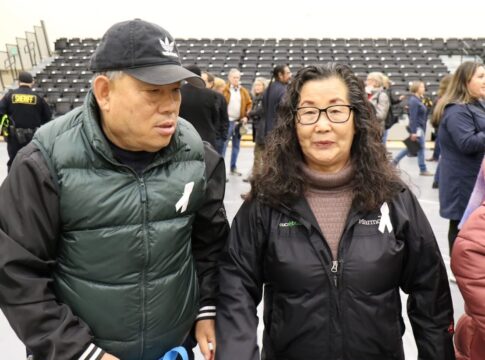By Shree Baphna, AsAmNews Staff Writer
Understanding the stigma and intersectionality surrounding mental health
Before the holiday season kicked in, I had the immense pleasure of having a conversation with Ulash Thakore-Dunlap, therapist and fellow AsAmNews South-Asian Advisory Board Member. Ulash was raised and educated in UK, and currently resides in San Francisco as a faculty member at both Berkeley and San Francisco State Universities.
I had reached out to Ulash, hoping to understand better the South Asian American experience regarding mental health during the COVID-19 pandemic. Serendipitously, Ulash had recently been promoting her new book, Counseling and Psychotherapy for South Asian Americans: Identity, Psychology, and Clinical Implications. It was a ripe opportunity to broach the topic of South Asian mental health- something seldom discussed within the community, yet prevalent everywhere.
LATEST STORIES
In Ulash’s words, the book was written with a clear intention to cover the experiences of the diverse South Asian American community. To do so, the book seeks to consult a wide variety of voices, such as psychologists, counsellors, and master’s students. In doing so, it covers the life course of individuals and focuses on children and older people, who are more likely to be left out of the mental health discourse. It also addresses the struggles of South Asian American clients being able to seek out counsellors from similar backgrounds. This is due to a scarcity of South Asian therapists within the field.
I was particularly struck by Ulash’s acknowledgement of a lack of South Asian American therapists and related it to my own struggles in finding a therapist. As I disclosed to Ulash, it is important to me that my therapist can understand my background and culture because much of what I discuss is deeply rooted in my cultural context. And then, even if I were lucky enough to find a therapist who could have a personal understanding of my background, it is difficult to find a therapist who identifies as a woman. For myself, my background and my gender intersect intricately to influence my mental health and my personal journey to improve it.
Most unfortunately, the stigma surrounding being a client has deterred many South Asian Americans from even pursuing therapy as an occupation. The field itself is very Eurocentric, making it non-conducive for therapists from non-western cultures. This is precisely the reason why Ulash’s new book is important- it attempts to educate non-South Asian Americans, South Asian American therapists, or anyone who has South Asian American clients.
The South Asian community does not normalize mental health problems, nor does it normalize access to mental healthcare. More so, such care is a luxury, and there are many logistical barriers to access. Even if one were to finally reach out to a therapist, there is still an immense stigma surrounding mental health which deters people. On top of that, it is hard to find someone who the patient clicks with. Therefore, the alternative to seeing a doctor for tangibly treatable ailments appears to be much easier and is more accepted, as a result.
This says a lot about the South Asian American immigrant community. Many South Asian American immigrants came to the UK or the US as professionals. As a result, even within our South Asian communities, we hold ourselves accountable to the model minority myth. Doing a profession within healthcare that is anything other than being a medical doctor invites scrutiny and judgement.
This intrigued me to know more about how Ulash herself had gotten into the field of therapy, having grown up in the 80’s as a child of South Asian immigrants in the UK. At the time, there was no such thing as a counsellor or therapist. Ulash’s parents were born in Africa. They were displaced during the Idi Amin regime in Uganda, forcing them to move to London. Ulash was born in a time of high racism in the UK and had a very working-class upbringing. To be middle class and an immigrant was a poverty trap, a difficult situation for many to get out of.

At the beginning of her career, Ulash worked in inner-city schools and at community colleges as a business and economics teacher. Over time, she built trusting relationships with her students, and many confided in her about their problems. The schools Ulash taught at were majority South Asian or Black students. There was an unspoken sense of understanding with her students because she felt she could resonate with them. Like Ulash, many students came from working-class families where English was not their first language. While she could not do much in school as a teacher, Ulash was determined to advocate for her students outside of the classroom. This kickstarted her journey in counselling and therapy.
From the beginning, Ulash knew clearly that her aim was to work with adolescents and immigrants and wanted to find the best way to support them through her work. Despite there being no scope for training of professional counsellors at the time, Ulash persevered and turned to teaching within the counselling field. In a way, Ulash became a ‘gatekeeper’ to ensure future professionals were well-trained in a culturally competent manner.
Hearing about Ulash’s experience with public schools, I was curious to know about public provisioning of mental health services. As someone involved in the public health field, it has been apparent to me how much mental health falls by the wayside within public sector healthcare services. From my conversation, I realized that for mental health to become accessible to all, many policy changes needed to occur. Healthcare work at the local, state, and national level must be an intersection of forward-facing professions and behind-the-scenes policymakers. Sadly, public policy is severely lacking for South Asian American children and adolescents from lower-income families.
Most concerning has been the lack of such public provisions in light of the COVID-19 pandemic. Ulash herself has detected an increase in suicide ideation among South Asian American adolescents and older people during lockdowns. Even if people had insurance, it was very difficult to make an appointment with a therapist (let alone with a therapist from a similar background), regardless of whether they had the means or not. As a result, there was also an increase in children and adolescents visiting ERs after attempting suicide.
All is not doom and gloom, however. Ulash does have hope for the future of South Asian mental health, but such hope must be mobilized through concrete actions. First, it is important to take this important conversation forward and ensure it continues. To get the momentum going, a social justice policy framework should be created to guide the conversation. Second, there must be active contact with legislators and directors of mental health programs to help with advocacy. Finally, within the South Asian community and within the field of counselling, action needs to be taken regarding the lack of South Asian American therapists and counsellors. The key is to understand what culturally competent counselling means and working collaboratively to create change.
What I learned in my thirty-minute chat with Ulash was that it all starts by having the tough conversations we would rather avoid. Even within our own circles at a micro-level, having a simple check-in with friends and family can go a long way. It is time we remove societal and cultural stigmas surrounding mental health, and work towards making it accessible to all.
If you are interested in reading more, check out these links below:
South Asians Need Proper Representation for Their Mental Health
South Asians and Indian Americans feel disconnected from Indian Americans
AsAmNews is published by the non-profit, Asian American Media Inc. Follow us on Facebook, X, Instagram, TikTok and YouTube. Please consider making a tax-deductible donation to support our efforts to produce diverse content about the AAPI communities. We are supported in part by funding provided by the State of California, administered by the California State Library in partnership with the California Department of Social Services and the California Commission on Asian and Pacific Islander American Affairs as part of the Stop the Hate program. To report a hate incident or hate crime and get support, go to CA vs Hate.








